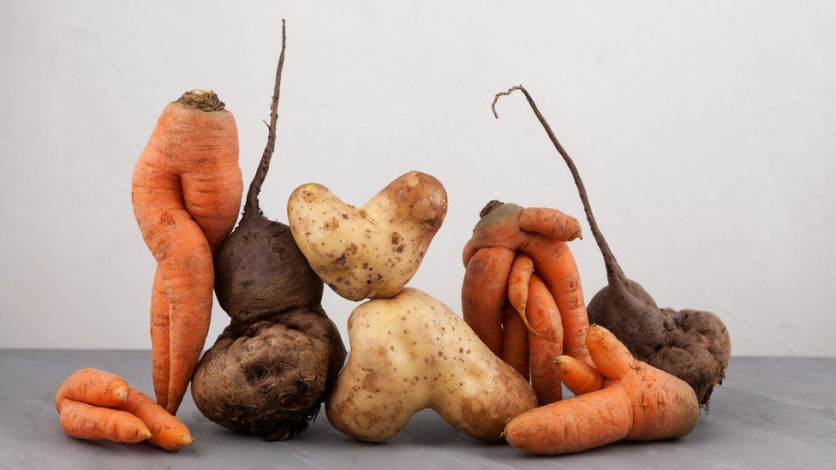
Picture: Collected
Fruits and vegetables on shelves will look smaller and
different as hot and dry summer weather damages crops, experts say. Potatoes,
onions, carrots, apples and Brussels sprouts are most likely to be affected.
Many areas of the UK have very little rainfall in 2022 and parts
of England are in drought. The National Farmers Union (NFU) wants supermarkets
to accept more "wonky" products and be flexible with farmers.
In Essex, farmer Sarah Green's fields are dusty and the
grass crunches beneath her feet.
Her crops are "alive, but not growing or
thriving". The hot summer sun made her sweetcorn delicious, but smaller
than usual and she's had to lower her prices. Other crops still in the ground,
like cauliflower, Brussels sprouts and broccoli, are stunted.
And in Herefordshire, farmer Ben Andrews said his "nice
green" cabbage and kale were fine until a few days ago.
Now they've turned pale blue, he says. They feel leathery
and tough, no longer crisp and lush.
These crops are still in the fields but soon they'll be what
we buy in supermarkets.
It's too early to know how much UK produce will die due to
drought, but "crop quality" will certainly be hit, Jerry Knox,
professor of agricultural water management at Cranfield University, told.
More potatoes will be smaller, with lower quality skin and
even some defects, he adds.
Vegetables this autumn and winter "may not look normal,
but will taste the same", Tom Bradshaw, vice-president of the NFU, says.
"Consumers have been conditioned to believe that a potato looks a certain way," Mr Bradshaw says. To reduce the risk of even more price rises during a cost of living crisis, "we need to be more relaxed about appearance", he adds.
A representative for the British Retail Consortium (BRC)
told BBC News that supermarkets already accepted odd-shaped vegetables.
"Retailers understand weather conditions have been a
challenge and have taken steps to support their farmers. This includes
expanding ranges of odd-size/shape fruit and veg when needed," says Hannah
Dougherty, Food Policy Advisor at the BRC.
In Essex, rain is all Sarah Green and her family talk about.
This year they're measured 107mm of rainfall. Their annual average is 525mm.
This dryness means vegetables in the ground can't get the
moisture they need to keep growing, so they grow slower and don't become
full-size. Lack of water can make the skin tougher, or cause defects as the
crop is stressed.
Potatoes are very vulnerable to drought in the UK where half
the national crop is fed by rain, Prof Jerry Knox explains.
Harvesting the potatoes will be a challenge because it's
likely to be difficult to get the harvester into the hard ground, Sarah Green
explains. It might form big clods that damage the crop or cut it into pieces.
Carrots, parsnips, onions will be affected in a similar way
to potatoes, Prof Knox says.
By this point in the summer the "damage is done",
he says, and even significant rainfall isn't enough to fix the stressed
potatoes. See details.
|Source: Online/SZK
Comment Now